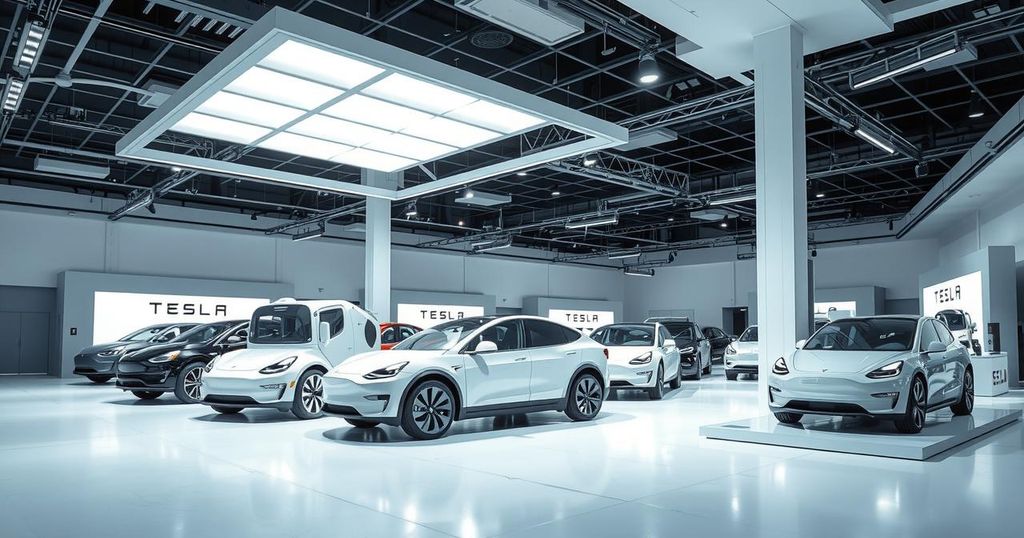Tesla’s Upcoming Launch in Saudi Arabia: Challenges and Opportunities

Tesla is set to launch in Saudi Arabia on April 10, 2025, showcasing its model range and technology after prior tensions with the Saudi government. The market poses significant challenges, including competition from Lucid and BYD, as EV sales represent only 1% of total car sales in the country. Tesla’s success in Saudi Arabia will depend on its ability to navigate consumer preferences and infrastructural limitations.
Tesla is preparing to launch its operations in Saudi Arabia on April 10, 2025, with an event scheduled to take place in Riyadh. This development indicates a reconciliation between Tesla’s CEO Elon Musk and the Saudi Arabian government, following past tensions arising from Musk’s 2018 attempt to take the company private, backed by Saudi Arabia’s sovereign wealth fund, the Public Investment Fund (PIF).
The upcoming launch will feature Tesla’s complete model range, utilizing solar energy, alongside demonstrations of autonomous driving technology and advancements in artificial intelligence and robotics. The event’s invitation highlights the audience’s ability to express their interest in various Tesla models, showcasing an engaging customer experience.
Despite launching in the Saudi market, Tesla is facing significant challenges. Recent data from the European Automobile Manufacturers Association reveals a stark downturn in Tesla’s sales, with a 42.6% decrease in car sales in Europe this year, amid rising competition and controversies linked to Musk’s management style. Activist protests and criticisms of corporate decisions have contributed to this decline in consumer confidence.
The Saudi market currently hosts other electric vehicle (EV) competitors, including Lucid and BYD from China, but overall EV sales remain low, constituting just 1% of total car sales in Saudi Arabia, as reported by consultants PwC in 2024. The presence of Lucid Group, backed by a substantial PIF investment, further complicates Tesla’s potential success.
Furthermore, while some analysts speculate on the feasibility of a Tesla factory in Saudi Arabia, no conclusive agreements have been established, emphasizing the complexities surrounding market entry for Tesla amidst a competitive landscape and entrenched gasoline vehicle preferences.
The current market reflects a slow transition to electric mobility in the Gulf region, primarily due to inexpensive fuel and economical traditional vehicle alternatives. Although there is a gradual shift towards recognizing the importance of EVs, widespread adoption hinges on the development of extensive charging infrastructure and competitive pricing to appeal to consumers.
Overall, Tesla’s entry into Saudi Arabia represents a crucial strategic move but comes with inherent risks and challenges, particularly against a backdrop of existing competition and consumer habits favoring traditional vehicles.
In summary, Tesla’s planned launch in Saudi Arabia on April 10 marks a significant step in its pursuit of expanding into Middle Eastern markets. However, the company faces substantial obstacles, including intense competition from established EV brands and a historically low demand for electric cars. Additionally, cultural preferences for gasoline vehicles and infrastructural challenges present further difficulties for Tesla’s anticipated success in this new market.
Original Source: www.team-bhp.com





